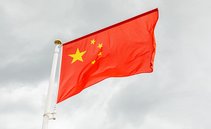Is China focusing on the coast to establish itself as a new global power? There are 3 challenges and they involve the rivalry with the USA.

China establishes itself as one of the undisputed protagonists of the world economy, with 3 key factors under the lens after the meeting of the National People’s Congress (NPC), which brought together around 3,000 delegates from the political elite, economic and cultural of Beijing. The key event for the second world power ended without the usual press conference of the Chinese prime minister.
The annual meeting of the country’s Parliament began on March 4 at the Great Hall of the People in Tiananmen Square, with delegates tasked with passing new laws and political appointments, as well as evaluating a series of reports from departments across the government. As underlined by several analysts, this event of top executives is almost exclusively ceremonial. Real power rests with the ruling Communist Party, led by Xi Jinping, who is the party’s general secretary and president of China.
However, announcements made during the Congress may shed light on government policy. In 3 points illustrated below, the future of China emerges.
1. 5% growth
China has set a growth target of about 5% for 2024, Premier Li Qiang said at the start of meetings on Tuesday in which he released the highly anticipated government work report.
Industry support is clearly at the top of Beijing’s priority list for the year ahead, according to three major plans released during parliamentary meetings. On the other hand, the Asian nation is losing its historic and massive weight in the world economy.
The real estate sector, in contrast, has received less emphasis. However, the Minister of Housing and Urban-Rural Development said that failing property developers should go bankrupt. At a press conference on Saturday, Minister Ni Hong also warned that those who "harm the interests of the masses" will be investigated and punished.
The +5% GDP target for 2024 has been seen by some as "ambitious", although some consider it relatively realistic if China can escape a potential deflationary spiral.
2. Tech ambition
One of the general themes of the meeting was the push to focus the Chinese economic model on technological innovation and to transform the country into a high-tech power.
In a speech last week, Premier Li called for strengthening "self-reliance and strength in science and technology", amid the need for a push to upgrade industrial supply chains and strengthen China’s position as a high-level tech innovator. This included a 10% increase in China’s annual budget for science and technology, reaching an unprecedented 370.8 billion yuan ($51.6 billion).
Also highlighted was the new political buzzword "new three," a term coined by Xi last year to refer to high-tech sectors such as new energy vehicles, artificial intelligence , renewable energy, and advanced manufacturing, signifying the leader’s desire to push the country forward in the global race for critical technologies.
Facial recognition scanners at the entrance to the NPC gave delegates a glimpse of what an economy focused on "industries of the future" might look like.
"The two sessions clearly conveyed China’s intention to focus on developing new technologies to achieve self-reliance ," Zhang, an associate professor of law at the University of Hong Kong, told Al Jazeera.
"China is driven by a sense of urgency to catch up with the United States", he added.
To accommodate potential economic growth through new technologies, the professor told Al Jazeera that he believes "the Chinese government will take a relatively lenient approach to regulating new technologies such as artificial intelligence". The challenge to the USA is up.
3. Defense and security
The Government has not announced a specific spending target for the green transition to the Assembly.
Instead, it said defense resources will increase by 7.2% in 2024, the same level of increase as in 2023. A spokesperson specified: "China has maintained relatively low military spending and the nation always pursues a path of peaceful development".
However, analysts noted that references to peace were noticeably absent in the sections of the prime minister’s employment report in his references to Taiwan. Last year’s report called for “promoting the process of China’s peaceful reunification", while this year Li said China "will be steadfast in advancing the cause of Chinese reunification".
According to the Stockholm International Peace Research Institute (SIPRI), other countries, including the United States, Japan, Australia, and South Korea, have increased military spending "driven by the perception of a growing threat from China ".
Beijing’s defense budget has more than doubled since 2015 but the US continues to spend by a substantial margin higher than China on its military, according to William D Hartung of the Quincy Institute. US military spending of $877 billion was approximately three times higher than China’s $292 billion in 2022. Even in this area, the challenge is entirely between the two great powers.
Original article published on Money.it Italy 2024-03-12 11:35:03. Original title: La Cina del futuro in 3 punti






